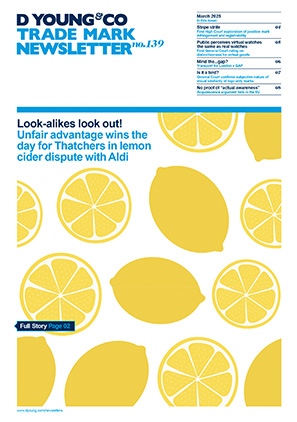W3 v easyGroup: Trade Mark Infringement
Is easyGroup’s trade mark for “easy” for advertising and temporary accommodation services valid and, if so, is it infringed by the sign EasyRoommate? In W3 v easyGroup, the English High Court has held not.
easyGroup is a group of companies with a portfolio of marks which use the prefix “easy” for different goods and services, an example of which is easyJet. W3 was the founder of “easyRoommate” and had used the sign, bar a brief interruption in 2003, since 1999. Since 2003, easyGroup had made a number of complaints to W3 regarding its use of the sign “easyRoommate”. This had made it difficult for W3 to procure investment for its business or sell it. This culminated in 2015 with W3 commencing an action for groundless threats. easyGroup counterclaimed for trade mark infringement and passing off and W3 in turn counterclaimed that the marks were invalid.
Mr Justice Arnold held that the mark “easy” was invalid because it denoted a quality or characteristic of the services provided, namely that the advertising was easy to place and the accommodation was easy to book. He further held that the mark had not acquired distinctiveness. While he acknowledged that the public had become used to associate the prefix “easy” with another word with an upper case first letter in a particular font and in white against orange, he concluded that it did not follow that they would have the same reaction in relation to “easy” alone and without stylisation. As to infringement, he held that there was none, as the evidence of likelihood of confusion was limited.
Case details at a glance
Jurisdiction: England & Wales
Decision level: High Court
Parties: W3 LIMITED (claimant), EASYGROUP LIMITED (defendant) and JEAN CAMILLE PONS (third party)
Citation: [2018] EWHC 7 (Ch)
Date: 12 January 2018
Link to full (bailii) decision: http://www.bailii.org
